U.S.-Backed Deal Exposed

ISRAEL-PALESTINE CONFLICT
The U.S.-Backed Agreement (Scam) of the Century Exposed
U.S. President Donald Trump announced from the White House on January 28 his peace plan to “resolve” the historic conflict between Israel and Palestine, a scam that seeks to get the Palestinian people to accept an agreement that curtails their sovereignty
By Enrique Moreno Gimeranez | enrique@granma.cu
February 20, 2020
Translated and edited by Walter Lippmann for CubaNews.
It could definitely qualify as the Scam of the Century. U.S. President Donald Trump announced from the White House on January 28 his peace plan to “resolve” the historic conflict between Israel and Palestine, a document titled “Peace for Prosperity. A Vision for Improving the Lives of the Palestinian and Israeli Peoples,” internationally referred to as the Agreement of the Century.
“This vision of peace is fundamentally different from past proposals. In the past, even the best-intentioned plans were simple in their objectives and had complicated conceptual frameworks. In contrast, our plan is 80 pages long and is the most detailed proposal ever presented,” Trump presented his grand strategy.
But, in addition to the numerous international resolutions and historical keys that he threw away, in his proposal for an Agreement the magnate President overlooked an unavoidable detail: any project for peace and the solution of this conflict must necessarily involve two actors: Palestine and Israel. The Palestinian side was not included in the elaboration of the plan and only the Israeli premier, Benjamin Netanyahu, attended its presentation in Washington. Taking into account only this essential element, the pact was born by itself wounded to death.
“There were no brief or detailed talks with the US administration on the so-called Century Agreement. Palestine is opposed to everything related to the agreement,” Nabil Abu Rudeina, spokesman for the Arab nation’s presidency, had previously stated.
In the face of such actions by the United States, it is impossible not to recall the signing of the Treaty of Paris on December 10, 1898, between the governments of the United States and Spain. On that occasion, Washington and Madrid defined the situation of several territories, without the participation of representatives from Cuba, the Philippines, Guam or Puerto Rico. They avoided the sacrifice of the Cuban people during several years of wars of independence. Decades later, imperialism recycles a similar script and leaves the Palestinian people, the main victims of the conflict with Israel, out of the picture.
According to the BBC, the design of the plan took about three years and had among its “architects” Trump’s son-in-law, Jared Kushner. The truth is that the moment of presentation of the controversial pact was very appropriate, both for Trump -wrapped in a scenario of impeachment and electoral campaign- and for Netanyahu -accused of corruption-. Perhaps, both dreamed of scoring points in foreign policy and at the national level, but the applause did not reach the expected dimensions.
Who wins and who loses with the American project?
If only Tel Aviv sat at the negotiating table, we can imagine the answer. The question becomes much more complex as we examine the different points of the agreement.
“Jerusalem must be recognized internationally as the capital of the State of Israel. Al Quds (or another name selected by the State of Palestine) must be internationally recognized as the capital of the State of Palestine,” the document states.
Accordingly, the U.S. embassy to the State of Israel will remain in Jerusalem and, following the signing of the Israeli-Palestinian Peace Agreement, the U.S. embassy to the State of Palestine will be in Al Quds (the Arabic name for Jerusalem), which would be located in the East Jerusalem section, territory that includes Abu Dis. In addition, other nations are encouraged to relocate their embassies to those locations.
“This is the most controversial and unavoidable point for the Palestinians (…). I will not engrave (my name) in my history and that of my country as the one who sold Jerusalem, because Jerusalem does not belong to me, but to everyone,” said the leader of the Palestinian National Authority (PA), Mahmoud Abbas, at an extraordinary session of the Arab League on February 1 to study the peace plan.
This contravenes international law and numerous UN resolutions on the subject, including UN Security Council Resolution 478 of 1980, which censured in the strongest terms and declared null and void the 1980 Jerusalem Law – by which Israel annexed Jerusalem as its ‘eternal and indivisible’ capital after the Six Day War – and urged UN Member States to move their embassies to Tel Aviv in protest.
However, it follows the maneuvers of Donald Trump who, since December 2017, had announced the controversial decision to recognize Jerusalem as the capital of Israel and to begin the process of transferring the U.S. embassy to that city.
So far, the governments of Guatemala and Honduras were the only Latin American countries that supported Washington’s decision and moved their embassies and trade offices to the Holy City, respectively.
Other controversial points of the Deal of the Century turn out to be that it allows Israel to annex part of the West Bank, while the Palestinians are promised several territories in the Negev desert. In addition, the Arab state will have access to the Israeli ports of Ashdod and Haifa.
The West Bank and Gaza would be linked by a tunnel through Israel. The existing Israeli settlements in the West Bank (considered illegal under international law) would be incorporated into the State of Israel. Israel would undertake not to build new settlements, expand existing ones or approve plans for construction in the areas that would become part of the Palestinian State. In exchange, two areas of comparable size to the Gaza Strip would be created south of this enclave: one would be an advanced industrial zone and the other an agricultural and residential area.
Palestine will have the opportunity to have an independent state within four years, provided that they disarm groups such as Hamas and Islamic Jihad.
“A realistic solution would give the Palestinians all the power to govern themselves, but not the powers to threaten Israel. This necessarily implies limitations on certain sovereign powers in Palestinian areas,” the plan outlines. Thus, Israel will control the airspace over the Arab state and the territorial waters of Palestine off the Gaza Strip. Two crossings on the border with Jordan, which will be included in the Palestinian road network, will also be under Israeli control, says RT.
The Cuban position
Cuba’s position on the Accord (Scam) of the Century was expressed on Twitter by our foreign minister Bruno Rodriguez: “A biased and misleading repudiation of the US peace plan that enshrines the Israeli occupation and violates the inalienable right of the Palestinians to have their own state on the pre-1967 borders, with East Jerusalem as its capital and the return of the refugees.
Cuba has also reaffirmed its unrestricted support for a comprehensive, just and lasting solution to the Israeli-Palestinian conflict, based on the creation of two States. This would allow the Palestinian people to exercise their right to self-determination and to have an independent and sovereign State with the pre-1967 borders, with East Jerusalem as its capital, and the right to the return of refugees.
The Greater Antilles has expressed in various international forums, to the Palestinian Government and people, its unwavering solidarity and support for Palestine’s accession to full membership in the United Nations.

Culture of Violence in the USA

Culture of Violence in the USA:
More Guns Than People
A shooting, which occurred on February 26th in the city of
Milwaukee, Wisconsin, has so far left seven dead
——————————————————————————————————————
Author: Raúl Antonio Capote | internacionales@granma.cu.February 28, 2020 01:02:35
@granma.cu.Translated and edited by Walter Lippmann for CubaNews.

Police cordoned off the area of the incident in Milwaukee, where a shooting left seven people dead.
Photo: Milwaukee Journal Sentinel
Once again, firearms are the protagonists of a painful act of blood, pain and death in the United States. A shooting, which took place on February 26 in the city of Milwaukee, Wisconsin, has so far left seven people dead. According to local police, among the dead is the attacker, who was apparently a former employee of the Molson Coors brewery, where the incident occurred.
The city’s mayor, Tom Barret, called the incident a terrifying episode. Wisconsin Governor Tony Evers and Attorney General Josh Kaul also arrived at the scene.
“This is heartbreaking. My heart goes out to the Molson Coors employees, their families and the entire Milwaukee community. The Criminal Investigation Division of the Department of Justice is on the scene and will continue to assist local authorities with whatever they need,” tweeted Josh Kaul.
Police have cordoned off the area of the incident. Nearby businesses and enterprises in the area were closed as a result of the shooting, the fourth of the year in the United States, which has so far claimed 12 lives.
The last such event in Milwaukee was in August 2012, when a white supremacist terrorist killed six people.
Former U.S. Vice President Joe Biden, a Democratic nominee for the U.S. presidency, recently devoted most of his speech at a Democratic gala in Las Vegas to harsh criticism of the National Rifle Association and gun manufacturers, promising to hold them accountable if elected President.
After lamenting the “carnage in the streets,” according to El Nuevo Día, and the anguish of families who lost loved ones to gun violence, Biden said he will not rest until they can sue gun manufacturers and ban assault weapons.
Joe Biden misquoted statistics on the number of Americans killed by gun violence since 2007. The mistake occurred while discussing gun control during the Democratic debate in Charleston, S.C., on Tuesday, Feb. 25, when he spoke of more than 150 million Americans killed by guns that year, according to Hispantv, a figure no doubt exaggerated in the midst of the debate for the Democratic nomination. But it reflects the plight of the American people in the hands of unscrupulous gunrunners and politicians who make a career out of suffering and death.
The Legacy of 2019
Official figures show that in 2019 there were 44 shootings that left 224 victims. However, a report by the Gun Violence Archive (GVA) handles much higher statistics that not only refer to deaths caused by single shooters, but to all deaths from firearms.GVA notes that at least 38,730 people were shot dead. Of these, 14,970 were victims of homicides, murders, intentional shootings or use defensive, a number very similar to that recorded in 2018, which was 14,789.
The nonprofit group, which documents firearms incidents across the country, counted 23,760 suicides involving some type of weapon.
The organization defines “mass shootings” as events in which at least four people are injured and “killings” as incidents in which at least four people are killed. It confirmed that in 2019 there were 409 mass shootings and 30 killings in that country.
He points out that there are also fatalities in family disputes, crimes of passion, gang fights, assaults and robberies, and from firearm accidents.
The areas where most of these incidents occur are Louisiana, Mississippi, North Florida, Alabama, Georgia and South Carolina, followed by North Carolina, Virginia, West Virginia, Maryland, the District of Columbia, Pennsylvania, Delaware and New York, according to the gva report.
In the United States, there are approximately 200 million to 350 million firearms in the hands of citizens; however, these figures are highly inaccurate, due to the lack of a national census and federal documentation of control of such weapons.
The ease of acquiring almost any type of firearm and the state laws that allow its carrying and use, plus the culture of violence, rooted in the foundations of the nation, are the main causes of the high number of fatalities.
Source: Reuters, AP, EFE, Gun Violence Archive (GVA).
Cuban TV Apologizes for Gay Kiss Omission

Cuban Television Apologizes for the Omission
of the Gay Kiss in the Film “Love, Simon”
March 1, 2020
Translated and edited by Walter Lippmann for CubaNews.

The film will be broadcast entirely in the same space and we will announce it to the audiences in due course. Photo: Screenshot “Love Simon”
Cuban TV apologizes to the TV audience for the mutilation of the scene from the film “Love, Simon” in the space Thinking in 3D this Saturday, February 29, where the protagonists, two young homosexuals, were kissing.
In view of this error, we want to report that the corresponding analysis is being carried out, since the omission does not respond to homophobic positions of the ICRT and its directors of TVC, as some have referred to on social networks.
The film will be broadcast entirely in the same space and we will announce it to the audiences in due course.
The inclusive vision of Cuban society pushes daily against cultural stereotypes. It is the duty of all to walk on the side of the just and to advance as the country that constitutionally recognizes “the cult of Cubans to the full dignity of man.”
On video, “Love, Simon” trailer
This note widely reproduced in the Cuban media. Examples:
http://tvcubana.icrt.cu/seccion-informaciones/4730-informacion-de-la-tv-cubana
Televisión cubana ofrece disculpas por omisión de beso gay en filme “Love, Simon”
Ernesto Cardenal on Fidel

Ernesto Cardenal on Fidel:
He is Not a Simple Character
 By Fernando Cardenal was a Nicaraguan poet and priest, one of the main exponents of Liberation Theology. Author of “Gethsemani Ky”, “Hora 0” and “Epigramas”.
By Fernando Cardenal was a Nicaraguan poet and priest, one of the main exponents of Liberation Theology. Author of “Gethsemani Ky”, “Hora 0” and “Epigramas”.
August 13, 2009
Translated and edited by Walter Lippmann for CubaNews.
Taken from Juventud Rebelde
For those of us who have known Fidel Castro (and love and admire him) it is difficult to give a brief portrait of him. Because contrary to what those who only know him from the newspapers (often hostile to him) may think, he is not a simple character to define, but a highly complex one.
Above all, it must be said that he is a brilliant personality. But he is not only a genius, but many geniuses. He was first known as a guerrilla genius. Later he proved to be a genius as a statesman, too: one of the greatest statesmen of his time, standing out from them all for having ruled for so many years with great skill, or if you like with great success, facing the greatest power in the world under such unequal conditions.
We must also add that he is a great genius of oratory, I would say that he is not only one of the greatest orators of his time but of all history. It is amazing to see how he captivates the audience, in Cuba and in any other country, speaking for hours and hours, without having the speeches written as Demosthenes did, and sometimes without even having prepared them, completely improvised.
Unlike his rivals, the presidents of the United States, who, according to Gore Vidal, cannot write their own speeches if they do not have someone to write them for them, and sometimes they cannot even read them. He is also a genius with a great deal of knowledge. He is profound in agriculture, in medicine, in economics (perhaps the world’s greatest expert on foreign debt), in electronics, energy resources, and many other things.
Gabriel García Márquez told me about the success and depth with which he analyzed in the morning a novel of his that I had just read the night before. A few years ago he decided to study Liberation Theology, of which he knew nothing. Some theologians of this tendendy have told me how he had become an expert in it. I might also add that he is great in memory: I myself witnessed how an unfinished business he had discussed with me ten years ago was taken up again when he saw me again ten years later (there being so many people he sees). He is also famous for his ability to retain numbers and to do instant mathematical operations.
As someone who has treated him personally on occasion, I can attest that he is a fascinating personality: affectionate, very soft-spoken, polite, and even tender. He is familiar with anyone from the very first moment. He is witty, witty, and always makes you laugh… All this explains why he has been an indispensable character for the people of Cuba, why he has ruled for so long (not by force of arms, because he doesn’t rule by force of arms) and why he is so popular. And also that he has the enemies that he has.
Gallery: Fidel in the eyes of the artists
Selection of paintings made by great Cuban and international artists, dedicated to Fidel Castro. This exhibition is part of the collection of the National Museum of Fine Arts.
Gallery: Fidel Castro, photos by Liborio Noval
Selection of photos of Fidel Castro taken by Liborio Noval, one of the most recognized professional photographers in Cuba. Liborio is a National Prize of Journalism and a collaborator of Cubadebate.
Nicaraguan Poet Ernesto Cardenal Dies

Nicaraguan Poet Ernesto Cardenal Dies
March 1, 2020
Translated and edited by Walter Lippmann for CubaNews.
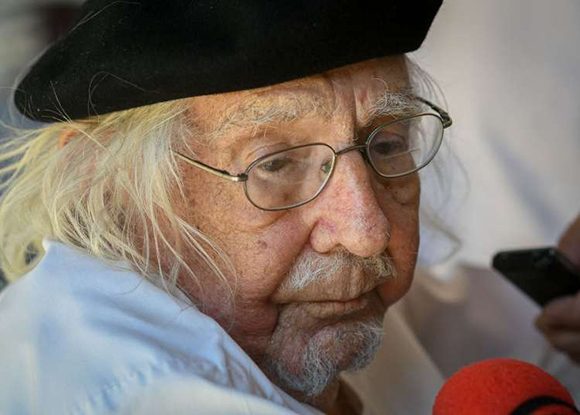
The poet Ernesto Cardenal. Photo: Confidential.
The poet Ernesto Cardenal died this Sunday afternoon in Managua at the age of 95. The priest was suffering from heart and kidney problems and had been hospitalized for a few days.
Nicaragua and Latin America are losing their greatest literary reference after Ruben Dario.
“I am a poet, a priest and a revolutionary”, was what defined the man who, in 2012, was admonished by Pope John Paul II for making a revolution together with the Sandinista Front for National Liberation (FSLN).
Cardinal, born in the colonial city of Granada in January 1925, was a poet, priest, theologian, writer, translator, sculptor and politician. His poetic work won him several international awards. In 2012 he received the Queen Sofia Award for Ibero-American Poetry. He was one of the most outstanding defenders of liberation theology in Latin America.
On February 4, 1984 -in the framework of the Cold War- Pope John Paul II imposed the suspension ad divinis (prohibition to administer the sacraments) to the priests Ernesto Cardenal, Fernando Cardenal (the poet’s brother), Miguel D’Escoto and Edgard Parrales due to their attachment to liberation theology. Thirty years later, on August 4, 2014, Pope Francis ordered that D’Escoto’s punishment be lifted, and Cardinal on February 17, 2019.
He poured his essence into his verses: the desire of women in his Epigrams, the concern about God, his revolutionary spirit in his poems against the Somoza dictatorship, his psalms, the conviction of social justice, and the famous Prayer for Marilyn Monroe.
On Monday, a mass will be held in Managua’s cathedral and the funerals will take place in Solentiname, an island in Nicaragua’s Great Lake where the writer, theologian and sculptor founded a community of peasants, painters and poets in the 1970s in support of the Sandinista Front.
(With information from La Pagina)
==================
Ernesto Cardenal: on Fidel: He is Not a Simple Character
For those of us who have known Fidel Castro (and love and admire him) it is difficult to give a brief portrait of him. Because contrary to what those who only know him from the newspapers (often hostile to him) may think, he is not a simple character to define, but a highly complex one.
FULL: https://walterlippmann.com/ernesto-cardenal-on-fidel/
Jeanine Áñez’s Campaign Stained

Drug Narcojet Arrested in Mexico Stains Jeanine Áñez’s Campaign
February 25, 2020
Translated and edited by Walter Lippmann for CubaNews.
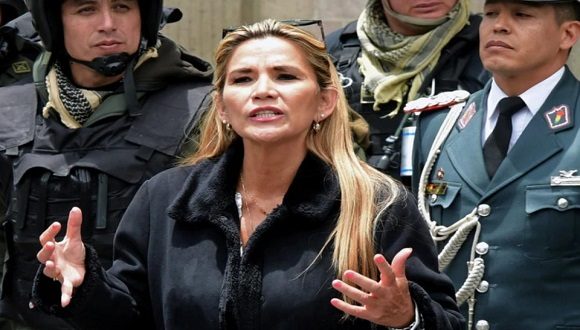
Jeanine Áñez presides over a de facto government in Bolivia, following the coup d’état against Evo Morales last November. Photo: Rebelión.
On Tuesday, it was revealed that the aircraft arrested in Mexico last January, coming from Guayaramerín, Bolivia, belonged to the Jalisco cartel and was supposed to finance the campaign of the de facto president of that South American country, Jeanine Añez.
As soon as the complaint about the arrest of the “Narcojet” on January 28 was made public, government minister Arturo Murillo was quick to say that “the drugs were loaded in the Chapare”. Days later, in the face of the rain of evidence, he had no choice but to admit that the cocaine came from Guayaramerín, a province bordering the lands of the de facto president’s family.
“The drug was on the plane without any method of concealment. It is clear that in the place where the cocaine was taken on board, there was no control whatsoever,” a judicial source commented to the Argentine newspaper La Nación. This means that the Bolivian arm of the Jalisco cartel had the protection of the police and the army. The accumulation of evidence complicating the de facto government led former presidential minister Jerjes Justiniano to ask for the resignation of government minister Arturo Murillo.
According to the newspaper La Nación, the aircraft that took off from Guayaramerín had a U.S. license plate (registration N18ZL GLF3).
A witness revealed that the drug belonged to the Jalisco cartel and that it was supposed to finance Jeanine’s campaign. In addition, a confidential informant testified that the profits from the transaction of 1,000 kilos of cocaine destined for the United States were to cover the costs of the campaign of Jeanine Añez Chávez, a senator and current self-proclaimed president of Bolivia.
The media, whose task has been reduced to shielding (protecting) the image of the self-proclaimed, swept under the rug Jeanine Añez’s family links to drug trafficking. The self-proclaimed woman is married to Héctor Hincapié, a well-known Colombian politician who is under investigation for his ties to the Cali cartel, and is the aunt of Carlos Andrés Añez Dorado, who was arrested in Brazil with half a ton of cocaine.
(With information from Primera Línea)
Canadian First Nations on Health Coop with Cuba

Canadian First Nations on Health Cooperation with Cuba
 By Lisandra Romeo Matos and Lisandra Fariñas Acosta
By Lisandra Romeo Matos and Lisandra Fariñas Acosta
Cubadebate journalist. Degree in Journalism (2011), Universidad de Oriente. Worked at the Cuban News Agency (2011-2018).
February 28, 2020
Translated and edited by Walter Lippmann for CubaNews.

Jerry Daniels, the great chief of southern Manitoba and the Southern Chiefs Organization (centre), with chief Dave Ledoux of the Gambler Pueblo (left) and chief Nelson Genaille of the Sapotewayak Cree nation in northern Manitoba (right). Photo: Cubadebate.
First Nations leaders and health technicians from Manitoba and Alberta in Canada expressed their communities’ interest in establishing cooperation links with Cuba in the field of health.
After a week in Havana, where they toured several institutions in the sector and held meetings with authorities in the field, including the head of the country, Dr. José Ángel Portal Miranda, they announced this Friday at a press conference their growing desire that the Island be able to provide them with professionals trained in basic health services, who can attend to the needs of these for decades marginalized communities.
Jerry Daniels, the great chief of the southern region of Manitoba, and of the Organization of the Chiefs of the South, which represents 34 of the more than 600 native nations of Canada, said at Hotel Nacional de Cuba that these peoples “have been limited in their access to health care provided by the government,” and that is why they demand health care providers and various services in these communities.
He said that these communities “are in the midst of a process of transformation of care services, aimed particularly at creating and facilitating access, not only in infrastructure, but also in decision-making and training of professionals.
What we all agree on is that we need many more providers and access to health care, quality services, and professionals to assist these communities, especially in the most remote ones,” he remarked.
According to Daniels, Cuba has a structure in place and is recognized for using it, in addition to having cooperation programs consisting of sending health professionals to various nations, where they do their work with quality and contribute to saving lives even in the most difficult to reach regions.
He added that the Cuban government “can help in two fundamental aspects: sending doctors and other professionals to work in our communities to provide health services, and training specialists at the Latin American School of Medicine to return and cover existing health needs.
We are pleased to imagine that hundreds of health professionals will come to our communities and heal women, children, the elderly and other vulnerable populations. It would be a truly promising future, the native leader argued.
According to Daniel, another impact would be that by improving access to health care in these communities, in a more just and professional way, the migration of these populations to the cities in search of these services would be reduced.
“We want our communities to have health posts, hospitals and other assistance centers, and I urge the other chiefs of the first nations to open up to this possibility of collaboration with Cuba, which we need so much,” he said.
He called for accelerating the process of finding solutions to reverse existing health problems in these locations, such as diabetes, cancer, among other factors. “That is why we are here and we call on all world leaders to help us find solutions to provide better, quality health systems,” he summarized.
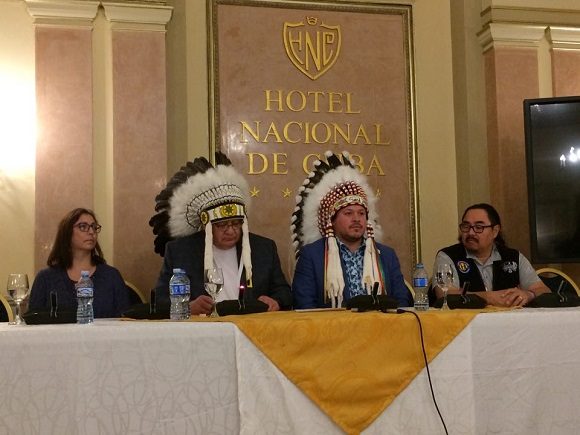
First Nations leaders and health technicians from Manitoba and Alberta in Canada. Photo: Cubadebate.
For Chief Dave Ledoux of the Gambler Pueblo, the offer from Cuba to the native peoples in Canada corresponds to the Cuban health mission around the world since 1959.
The leader highlighted the recognition of the Island’s health system by the WHO, as well as the quality and its preventive and holistic model, which has allowed to achieve minimal infant mortality rates, and to increase the life expectancy of its population.
“Thousands of students from all over the world have come to Cuba to study the different medical specialties in the last 60 years,” he pondered, and emphasized that it would be an opportune moment for this offer of help, “since we are currently rebuilding our communities to get out of decades of systemic institutional oppression.
The health philosophy of this country and its values are very similar to the traditional medicine model of our peoples, said Deloux.
The more than 600 first nations in Canada include more than one million people who would benefit from these services, he said. He added that from these initial meetings in Havana they are optimistic and hope to apply the ideas, designs and organizational strategies observed in the Cuban health system.
Trump’s Trick for Afghanistan Withdrawal

Trump’s Trick for Afghanistan Withdrawal
Published: Saturday 29 February 2020 | 10:53:30 pm.
 By Leonel Nodal digital@juventudrebelde.cu
By Leonel Nodal digital@juventudrebelde.cu
Translated and edited by Walter Lippmann for CubaNews.

Signatories of the Peace Agreement in Afghanistan; Mullah Abdul Ghani Baradar, leader of the Taliban delegation and Zalmay Khalilzad, representative of the United States Author: Reuters Publicado: 29/02/2020 | 10:33 pm
Presidential candidate Donald Trump had to rub his hands together when he learned in detail the real situation of the U.S. war in Afghanistan. That would be a strong campaign theme for him to win the White House.
Trump’s election promise in 2016 would be as close to the national will as possible: to end America’s endless wars abroad.
Barack Obama could not win it, even with the deployment of more than 100,000 soldiers in the Central Asian country between 2010 and 2012, at a cost of 100 billion dollars a year. Better to think of another way out.
The Pentagon had a guarded diagnosis, which the current head of the Defense Department, Mark Esper, recently simplified into a lapidary phrase: the war in Afghanistan is “still” in “a state of strategic impasse. In other words, lost, with no chance of military victory.
The $760 billion spent on the war in Afghanistan from October 2001 to March 2019, plus an additional $240 billion in additional spending, according to official figures, should be honored, but without losing face or completely sacrificing the business it represented for its war industry allies.
The publicity challenge for re-election in 2020 would be to make good on the promise of troop withdrawal from Afghanistan, but keeping up appearances, without winners or losers.
Trump changed the position maintained until then by Washington of refusing to speak directly with the Taliban.
With his high sense of political opportunism and dominance of the publicity show, the only winner of the bloody confrontation would be Trump, the architect of peace.
In October 2018, Trump gave the green light to secret negotiations with Taliban representatives in Doha, the capital of Qatar. In early September 2019, he even prepared – in complete secrecy – a spectacular “end of the war in Afghanistan” ceremony at the presidential residence at Camp David, where historic international agreements were signed.
However, the death of a US soldier in an attack in Kabul on 5 September led to an abrupt breakdown in the negotiations.
The talks “are dead,” he said in a theatrical tone, but without abandoning his secret intentions to resume dialogue.
However, The Washington Post warned last December that Trump was eager to announce the first redeployment of 5,000 troops, which some sources said was already in place, and was pressing for “a complete withdrawal before the 2020 election.
Washington would manage a “reduction of violence” and seal the end of hostilities between the United States and the Taliban. This would be followed by the negotiation of an “inter-Afghan” agreement.
It took 18 months of talks in Doha to end 18 years of war against the Taliban, the longest in U.S. history. On Saturday, February 29, the two sides signed a peace agreement that will pave the way for the withdrawal of U.S. forces from Afghanistan, in exchange for a series of solid guarantees from the Taliban to the United States and its allies.
In his new, revised version of “withdrawal,” released during his trip to India earlier this week, Trump said the United States is trying to reduce its troop levels in Afghanistan to 8,600 and “we will make a decision on what the final outcome will be.”
“We’re not really serving as a military force, but as a police force,” he said, “and we’re not a police force, they (Afghans) have to police their own country.
The president made it clear that even after a possible withdrawal of troops, the U.S. will maintain its presence in Afghanistan. “We will always have intelligence, they will have other things there,” Trump said.
What the president is hiding is that the background to the negotiations has been the pure and simple defeat of the world’s greatest war power. After 18 years of resistance, the Taliban is today stronger than before, with a stranglehold on more than half of the country’s territory.
Afghan President Ashraf Ghani himself said this year that more than 45,000 members of the security forces have been liquidated since he came to power in 2014.
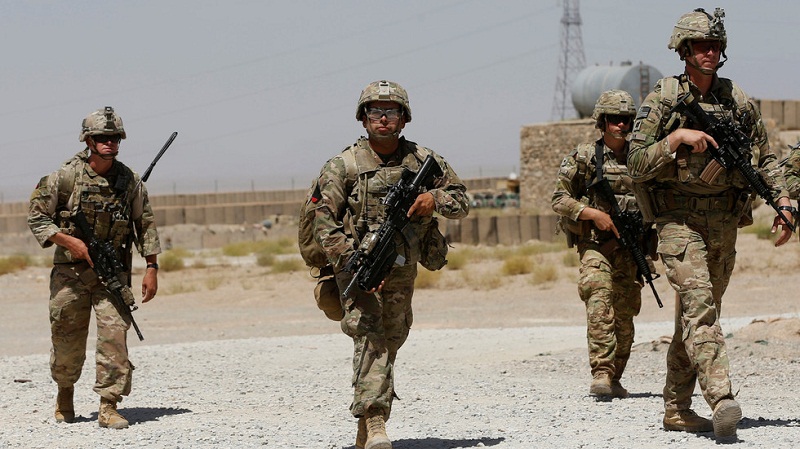
U.S. troops counting the days Afghanistan. Photo: Reuters
Afghanistan’s security force has a shortfall of 79,000 men, and official sources reveal that they are losing troops faster than they can replace them. In addition, the country’s income is insufficient to pay the bill for its own security forces. And that’s a doorway back to the United States.
TheTaliban’s chief negotiator, Sher Mohammad Abbas Stanikzai, who expressed his satisfaction with the peace agreement signed between the United States and the group in Doha, which he called a historic moment for the country.
The agreement was officially signed by Mullah Abdul Ghani Baradar, the deputy leader of the Taliban, and Zalmay Khalilzad, the U.S. special representative for reconciliation in Afghanistan, in the presence of representatives from more than 30 countries, including U.S. Secretary of State Mike Pompeo.
“After 20 years of war imposed on Afghanistan by U.S. and NATO forces, a peace agreement was signed today between the Americans and the Islamic Emirate of Afghanistan,” Stanekzai said, adding, “According to the agreement, all U.S. and NATO forces must leave Afghanistan within 14 months of the signing of the agreement.
Donald Trump is trying to transform a military disaster into a political-diplomatic peace victory, which as of February 15, 2020, left 2,448 U.S. soldiers dead and about 20,500 injured in action.
The damage suffered by the Afghan nation and people due to imperial intervention and the desire to establish a regime submissive to its interests characterizes one of the greatest humanitarian catastrophes in history, with more than half a million civilians killed and tens of thousands injured and wounded.
With next November’s elections in mind, Donald Trump is trying to capitalize on the gruesome U.S. withdrawal from Afghanistan as his own victory and trump card in his quest to screw himself into the presidential seat for four more years.
A “guajira” with good aim

A “guajira” with good aim
The 25-year-old from Santiago is the captain of the Cuban women’s archery team and is also the best archer in Cuba today
Published: Saturday 29 February 2020 | 10:18:31 pm.
 By Lianet Escobar Hernández lianet@juventudrebelde.cu
By Lianet Escobar Hernández lianet@juventudrebelde.cu
Translated and edited by Walter Lippmann for CubaNews.

With a personal best of 635 points, the Santiago native is aiming for a ticket to the Tokyo Olympics: Author: Abel Rojas Barallobre Published: 29/02/2020 | 09:49 pm
The cry of “guajira” is heard almost constantly in the training area of the women’s national archery team. Everyone knows that when Professor Vladimir Quintas comes to the appellation, he is calling Elizabeth Rodriguez Camilo.
The 25-year-old from Santiago is the captain of the Cuban women’s archery team and does not even wrinkle her face at the adjective that replaces her name, since she knows how fond the word is when it is pronounced by the person who was her first coach when she joined the national team, approximately eight years ago.
Rodríguez Camilo is currently the best goalkeeper in Cuba. This is guaranteed by her status as national champion, a title she has won four times in a row, and also by her results in international tournaments, including two fifth places in the Pan-American Games of Lima 2019, one in the team modality and in the mixed recurve goal.
“For me, as an athlete, it is important to have won the elite tournament of my sport so many times. That’s why I prepare myself all year long, always making my best effort to win. I don’t see the domestic competition as the highest step I have to reach, I think that at the level I’m at I have to aspire to more”, commented the young woman exclusively for JR.
For Elizabeth, that step up is certainly no different than the Olympic Games. The fact that she has never been under the five hoops is a motivation for the youngster who almost achieved her dream four years ago, and now she has the chance to make it happen again.
“For the Rio 2016 Olympics I was just a few inches away from the qualifying event, because my opponent shot very well, in the end, we went to a playoff arrow and he beat me by proximity, so I have a little thorn in my side that I hope to get out of the qualifying fight that will be in the Mexican city of Monterrey, from the 22nd to the 30th of this month.
I hope and can get the Olympic place, although I assure you I would be very happy if another one of us gets it, because that will be great for the Cuban archery. However, contrary to what happens in other sports where the country wins the ticket to the competition and not the athlete, we internally decided that whoever gets the ticket is the one who will be in Tokyo. I think that’s the fairest thing and it’s an additional stimulus that we have,” argued Rodríguez Camilo.
The untamed young woman is one of the few athletes who has the opportunity to share her training and competitions with figures with vast experience in the discipline such as the woman from Matanzas, Maidenia Sarduy, whom she accompanied in what was her first foray outside the country when she was only 18 years old.
I’m lucky enough to be on the same team as Maidenia,” he said. “Her advice, like Larissa Pagan’s, was fundamental. She helped me face my first international experience at a Central American qualifying event for Veracruz 2014, held in Medellin, Colombia, where the World Archery Championship was also held.
“There I was 33rd in individual archery and fifth place in the team. That was a competition that even scared me a little bit because of the high level I had, so it was essential to have the support of those figures,” emphasized Elizabeth.
Perhaps the most difficult thing for the Cuban Artemis is to be away from home, especially from her mother Kenya, who says it is her life and like the rest of the family supports her in all her decisions, including that of leaving the sport if her personal goals are not fulfilled.
“My particular aspiration is to finish this Olympic cycle and complete another one. Although this discipline is very long-lived, where you can be in it for years, I do want to make my family and living so far away does not make things easier for me. If I could put down roots in Havana, something that would allow me to form my family and have my mother with me, then I would gladly continue with bow and arrows under my arm, otherwise, I would say goodbye to it,” she emphasized.
Bolivia – Report “Finds Out” What We All Knew

Report “Finds Out” What We All Knew: There Was No Fraud in the Elections Won by Evo Morales
Electoral integrity specialists Jack Williams and John Curiel of the MIT (Election Data and Science Lab), concluded that “there is no statistical evidence of fraud” in Bolivia, as denounced at the time by the OAS.
By Raúl Antonio Capote | internacionales@granma.cu
February 28, 2020
Translated and edited by Walter Lippmann for CubaNews.

Photo: Taken from the Internet
The Washington Post on Thursday published an analysis by electoral integrity specialists Jack Williams and John Curiel of the MIT (Election Data and Science Lab), which concludes that “there is no statistical evidence of fraud” in Bolivia, as the Organization of American States (OAS) denounced at the time.
“On the contrary, it is highly probable that Evo Morales passed the ten percentage point mark in the first round,” the report states.
After the results of the MIT investigation were published, Evo Morales declared from his Twitter account that this is “one more evidence of the monumental theft that Mesa, Áñez, Camacho and Almagro did to all Bolivians.
According to The Washington Post, specialists Jack Williams and John Curiel indicated that according to their studies and the results that were released in preliminary form by the Bolivian Electoral Tribunal, the Movement towards Socialism party (MAS) would have obtained at least 10.49 percentage points more than the opposition candidate Carlos Mesa.
Mexico announced that it will demand that the OAS “clarify and explain the deficiencies in its report. In this sense, a third party will be formally requested to carry out a comparison of both studies and elucidate the discrepancies.
Subscribe to Blog via Email
| M | T | W | T | F | S | S |
|---|---|---|---|---|---|---|
| 1 | ||||||
| 2 | 3 | 4 | 5 | 6 | 7 | 8 |
| 9 | 10 | 11 | 12 | 13 | 14 | 15 |
| 16 | 17 | 18 | 19 | 20 | 21 | 22 |
| 23 | 24 | 25 | 26 | 27 | 28 | |


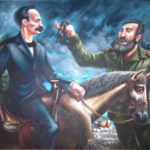
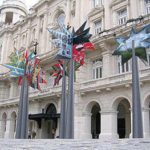

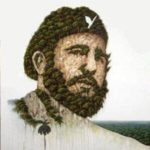









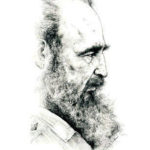
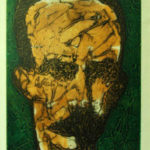


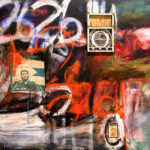
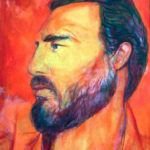
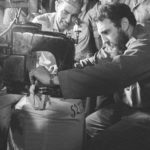

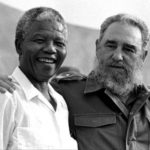
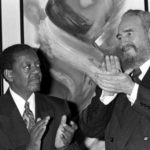
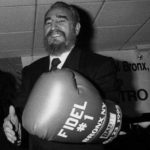

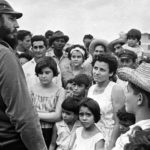

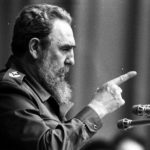

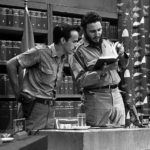
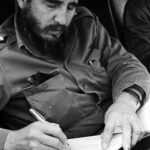
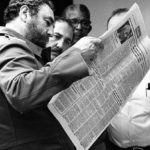
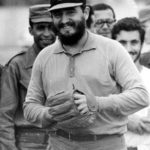
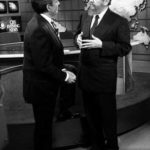
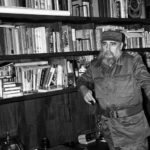
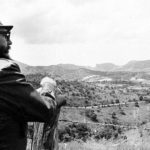

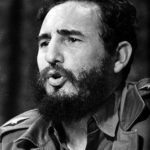
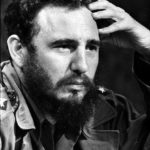
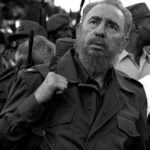

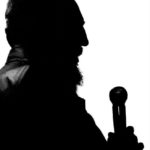
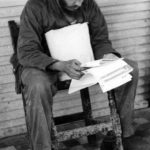



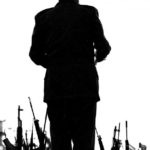

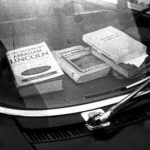
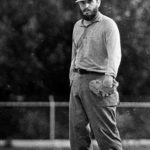

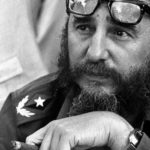
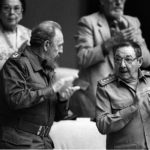

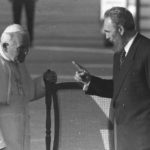
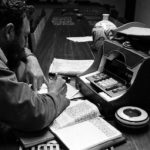
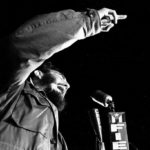
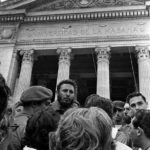
You must be logged in to post a comment.